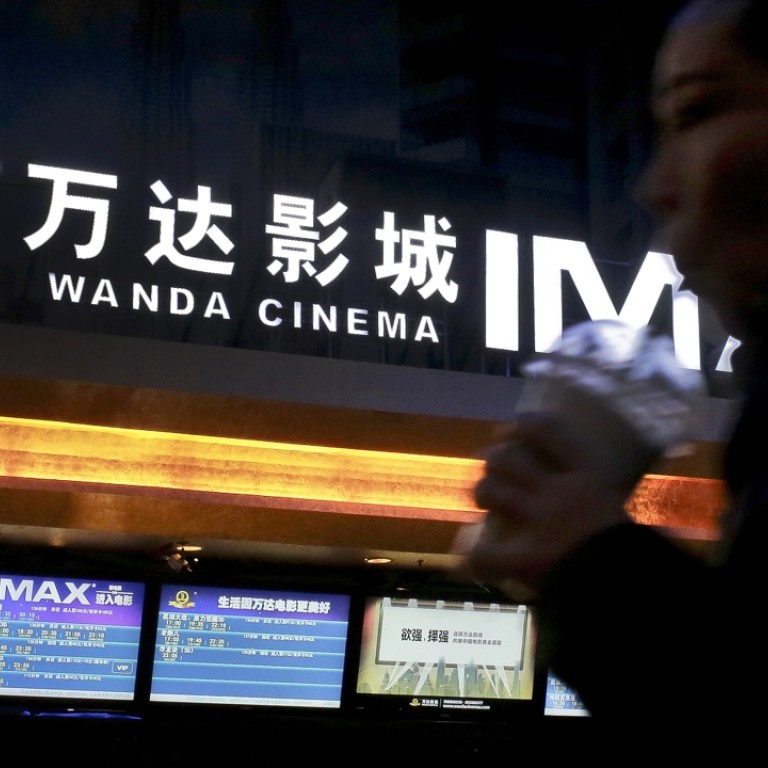
Chinese deal for Hollywood studio opens door to China film market
The US$3.5 billion acquisition by China’s richest man, Wang Jianlin, of Legendary Entertainment, the Hollywood studio behind films such as Batman and Man of Steel, should make it easier to screen its future productions in Chinese cinemas
Wanda Group, owned by tycoon Wang Jianlin, signed an agreement to buy the US film studio, maker of the latest Batman film, Man of Steel and other blockbusters, for US$3.5 billion.
Believed to be China’s largest ever cross-border acquisition in the cultural sphere, it is the latest in a string of deals involving cashed-up Chinese companies making overseas investments in film.

In 2012, the then largely unknown Wang, whose personal fortune is now estimated at US$31 billion, stunned the business world by buying US cinema chain AMC Entertainment for US$2.6 billion.
“With his hot money in hand, he would like to expand, both in terms of controlling movie theatres like AMC as well as the content part of it,” says Teng Jimeng, a professor of American studies and film at Beijing Foreign Studies University.
READ MORE: Why China’s richest man is building Hollywood of the East in Qingdao
“He's reaching out for expertise in content, in production and especially in co-production,” he says. “Co-production is becoming increasingly important for China.”
China limits the number of imported foreign films each year to just 34.
But co-produced movies are not subject to the limits, and are entitled to a larger share of the box office.
Films with significant Chinese elements – including characters, location and cast – can also bypass the restrictions, leading some producers to shoot scenes in the mainland, or include plot elements that relate to it.
But this strategy can backfire, notably with the Chinese version of Iron Man 3, which was panned for clunky references to a Chinese milk drink.

Tuesday’s deal should give future Legendary films direct access to the massive market. China’s box office growing nearly 50 per cent to reach US$6.8 billion last year, according to government figures.
In 2014, China had the world’s second largest box office with a revenue of US$4.8 billion, behind North America’s US$10.4 billion, according to the Motion Picture Association of America. The success of the latest Star Wars instalment, which opened in the mainland at the weekend and took US$53 million for Disney in just two days, shows the importance of the market.
“Now everyone is paying close attention to the Chinese market's box office potential,” says Amy Liu, senior vice president of Chinese entertainment research provider EntGroup. “This was certainly a very big incentive for Legendary.”
But the acquisition has raised questions over how Wanda and other Chinese entities will balance censorship at home with appealing to global audiences.
China's authorities delete content deemed politically sensitive or pornographic, notably yanking Quentin Tarantino's Django Unchained as screenings began in 2013 and then resuming shows with cuts to a scene which showed star Jamie Foxx naked.
Chinese companies have grander ambitions than the domestic market.
In September, private equity firm China Media Capital unveiled a venture with Warner Brothers to develop films.
Last year State-backed Hunan TV announced a US$1.5 billion agreement to fund the movies of US studio Lionsgate.
China’s Huayi Brothers Media Corp plans to joint produce at least 18 films with US film and television studio STX Entertainment, while Chinese conglomerate Fosun International has taken a stake in US media company Studio 8.
Some detect the influence of the Chinese government in such deals.
But Wang denies Beijing's “soft power” drove the deal.
“I'm a businessman. Government soft power belongs to another sphere,” he says, saying he is in the deal to make money.
But ties to the government can be good for business. Wang has confirmed that Chinese President Xi Jinping’s brother-in-law has owned shares in one of the group’s companies.
Outside its core commercial property business, Wanda’s interests range from entertainment to e-commerce. Last week, it announced plans to venture into health care by investing US$2.3 billion in hospitals.
Deng Haozhi, chief analyst at property developer Fineland, says: “Wanda is visionary in trying to shift away from real estate and position its business in fast growing emerging industries such as the movie sector, which is developing very rapidly in China.”

.png?itok=arIb17P0)